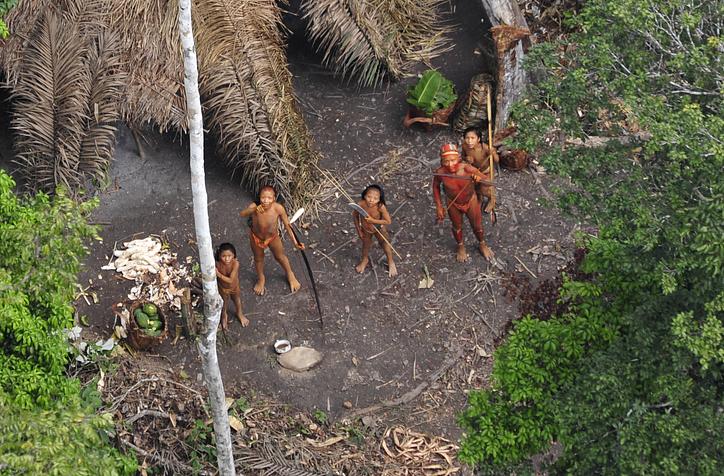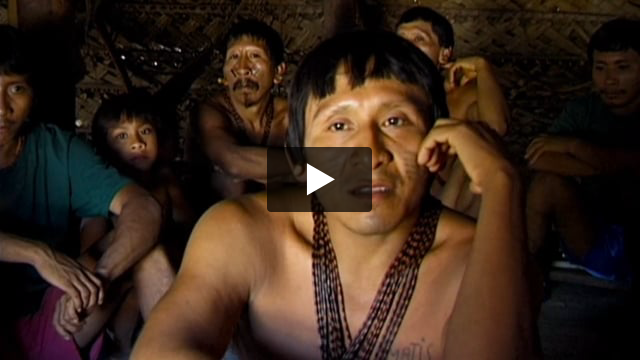At risk of genocide from disease and land theft
In the depths of the Amazon rainforest in Brazil live Indigenous people who have no contact with the outside world.
Illegal loggers and cattle ranchers are invading their land and bringing disease. They won’t survive unless this stops.
Brazil’s Amazon is home to more uncontacted Indigenous peoples than anywhere in the world. There are thought to be at least 100 uncontacted groups in this rainforest, according to the government’s Indigenous affairs department FUNAI.
Their decision not to maintain contact with other Indigenous peoples and outsiders is almost certainly a result of previous disastrous encounters and the ongoing invasion and destruction of their forest home.
For example, the uncontacted groups living in the state of Acre are probably survivors of the rubber boom, when many Indians were enslaved.
It is likely that the survivors escaped by fleeing up the rivers. Memories of the atrocities against their ancestors may still be strong.
Very little is known about these peoples. What we do know is that they wish to remain uncontacted: they have shot arrows at outsiders and airplanes, or they simply avoid contact by hiding deep in the forest.
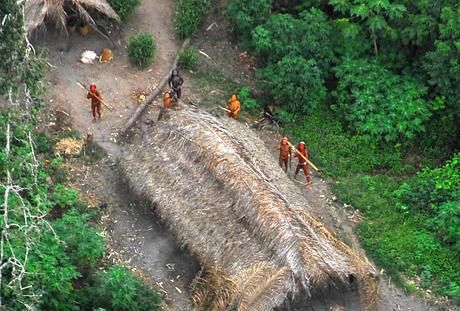 © G. Miranda/FUNAI/Survival
© G. Miranda/FUNAI/Survival
Some, like the uncontacted Awá, are nomadic hunter gatherers constantly on the move, able to build a home within hours and abandon it days later.
Others are more settled, living in communal houses and planting manioc and other crops in forest clearings as well as hunting and fishing.
It is believed that around 300 uncontacted live in the Massaco Territory. They use enormous bows and arrows – one bow was found measuring over four metres – very similar in size and design to the Sirionó people who live in neighbouring Bolivia. They clearly like to eat tortoises as mounds of shells have been found in abandoned camps.
However, other uncontacted groups are teetering on the edge of extinction with no more than a handful of individuals left.
These tiny fragmented groups living mainly in Rondônia, Mato Grosso and Maranhão states are the survivors of brutal land grabs when they were targeted and murdered by loggers, ranchers, and others.
Today they are still deliberately hunted down and their forests homes are being rapidly destroyed.
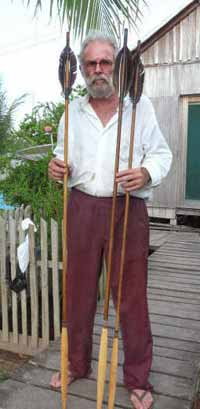
Former FUNAI official José Carlos Meirelles holds
arrows belonging to uncontacted Indigenous people.
© Gleison Miranda/FUNAI
Mega dam and road building projects, part of the government’s ‘accelerated growth programme’, pose huge threats.
All are extremely vulnerable to diseases like flu or the common cold transmitted by outsiders and to which they have no resistance: good reasons to avoid contact.
Even in this grim scenario, some remarkable stories of survival have emerged. Karapiru an Awá man survived an attack by gunmen and lived on his own for ten years hiding in the forest until he finally made contact with some colonists and started living with other Awá. He died from Covid-19 in 2021.
The uncontacted peoples of Brazil must be protected and their land rights recognised before they, along with the forests they depend on, vanish forever.
Threats
Time and time again, contact has resulted in disaster for Brazil’s uncontacted Indigenous people.
These very isolated peoples have not built up immunity to diseases common elsewhere, which is why they are so vulnerable.
It is not unusual for 50% of a people to be wiped out within a year of first contact, by diseases such as measles and influenza which can be brought in by loggers, missionaries, miners or other land-grabbers.
The Matis population fell by half following contact, when both young and old, including most of the shamans, died from introduced diseases.
Conflict and violent clashes are one of the most common outcomes of economic activity in areas where uncontacted people live.
Such conflicts have led to the death of some outsiders and many more Indigenous people.
The last three surviving Akuntsu suffered brutal attacks, witnessed the massacre of their companions and saw their homes bulldozed by ranchers.
Not undiscovered
There are uncontacted Indigenous peoples all over the world who have decided to remain isolated from national society or even other Indigenous peoples.
That does not mean that they are ‘undiscovered’ or ‘unchanged’. Most are already known about and however isolated, all constantly adapt to their changing circumstances.
Many have occasional, sometimes hostile, contact with neighbouring peoples. They are well aware of other societies around them.
Neighbouring Indigenous peoples and FUNAI often know the rough whereabouts of such groups.
Since 1987, FUNAI has had a department dedicated to uncontacted Indigenous peoples, whose policy is to not make contact.
Instead, FUNAI seeks to demarcate and protect their land from invaders by building protection posts staffed by field officers who monitor and deter invasions.
They will only survive if their land, which they have a right to under international and national law, is protected. They should be allowed to live in peace, free from fear of extermination and disastrous contact.
Contact should only happen when and where isolated peoples decide that they are ready for it.
The last ones
Some uncontacted Indigenous peoples are tragically down to their very last members. Here are some of the most threatened.
Piripkura, Mato Grosso
We do not know what these people call themselves, but their neighbours, the Gavião Indigenous people, call them the Piripkura, or the ‘butterfly people’, describing the way that they constantly move through the forests. They speak Tupi-Kawahib, a language family shared by several peoples in Brazil.
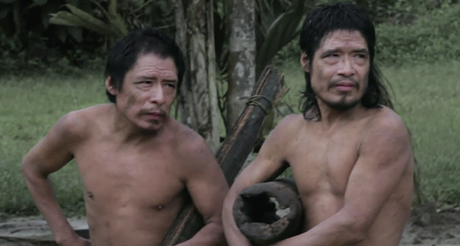 © Bruno Jorge
© Bruno Jorge
The Piripkura numbered around 20 people when FUNAI first contacted them in the late 1980s. After contact they returned to the forest. Since then, contact has been re-established with three members of the group.
In 1998 two Piripkura men, Baita and Tamandua,, walked out of the forest of their own accord. One of them was ill and was hospitalised.
During the short time he spent in hospital he talked about how in the recent past his people were more numerous and described how they had been massacred by white people, and how he and his sole companion moved through the forest hunting, fishing and gathering.
We do not know whether there are any other Piripkura survivors. But Baita and Tamandua, are in great danger as their land is constantly invaded by illegal loggers who are blocking their forest trails to prevent them from hunting.
FUNAI has signed a temporary order forbidding anyone to enter the Piripkura’s land without permission and banning all economic activities there. But unless the government takes urgent action to map out and sign their land into law now, the last known Piripkura survivors may not survive.
Kawahiva of the Rio Pardo, Mato Grosso
Little is known about this uncontacted Indigenous people but they are believed to belong to the Kawahiva group. FUNAI estimated they numbered about 50-100 some years ago but nowadays they may be even fewer.
It is believed they stopped having children because they are constantly fleeing loggers and other intruders.
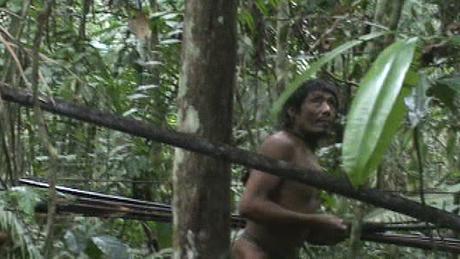 © FUNAI
© FUNAI
As they are always on the move, they cannot cultivate and must rely solely on hunting and fishing.
Their land has not yet been protected and therefore their survival as a people is at great risk. Their forests are constantly being invaded by loggers many of whom operate out of Colniza, one of Brazil’s most violent frontier towns in one of the most deforested regions in the Amazon.
Korubo of the Javari Valley
On the border of Brazil and Peru, the Javari valley is home to the largest concentration of uncontacted Indigenous peoples in Brazil.
One group, the Korubo, are known in the area as ‘caceteiros’ or ‘clubmen’ because of the large clubs they use to protect themselves.
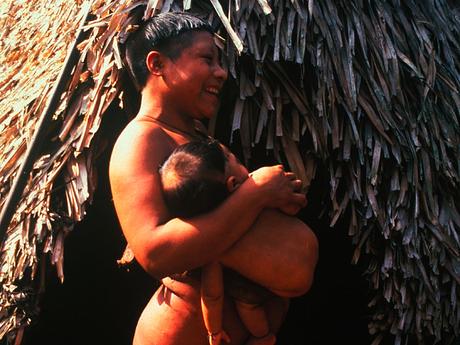 © Erling Soderstrom/Survival
© Erling Soderstrom/Survival
In 1996 FUNAI made contact with a group of 30 Korubo who had split off from the main group, which remains uncontacted and repeatedly avoids contact with surrounding groups.
Lethal diseases caught from outsiders are affecting contacted groups in the territory and there are fears these could be transmitted to uncontacted groups with tragic consequences.
The last of his tribe, Rondônia
This lone man was believed to have been the last survivor of his Indigenous people, who were probably massacred by ranchers who occupy the Tanaru Indigenous Land region in the state of Rondônia.
We never knew his name what his name was, the people he belonged to or the language he spoke. He was known for the large holes he dug to hide in or to capture animals. He totally rejected any kind of contact.
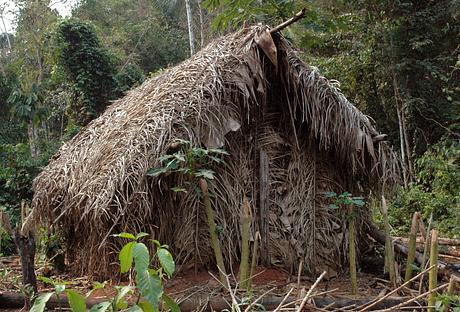
In the past, many ranchers have used armed men to kill uncontacted people in Rondônia.
In August 2022, after almost 30 years of living alone and constantly on the run, unfortunately the ‘last of his tribe’ died, apparently of natural causes.
Act now to support Uncontacted Indigenous Peoples of Brazil
Join the mailing list
There are more than 476 million Indigenous people living in more than 90 countries around the world. To Indigenous peoples, land is life. Find out more about them and the struggles they’re facing: sign up to our mailing list for occasional updates.
News from Uncontacted Indigenous Peoples of Brazil
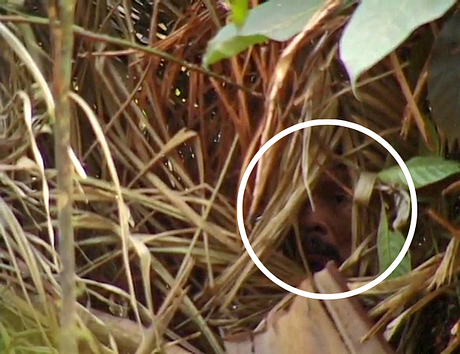
A symbol of Indigenous genocide: “The Man of the Hole” dies in Brazil
The death of the Indigenous man, who lived entirely alone, means his people have been completely wiped out.
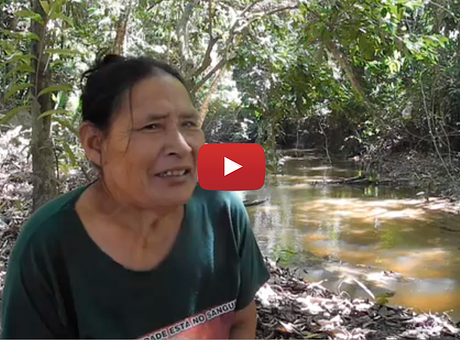
Brazil: Only contacted member of threatened tribe denounces impending genocide
The only contacted member of the Piripkura tribe has voiced her fears that illegal loggers will soon kill her relatives.

Revealed: Bolsonaro’s plan to wipe out “the world’s most vulnerable uncontacted tribes”
Bolsonaro's plan to open up the lands of #UncontactedTribes could drive several uncontacted tribes to extinction.
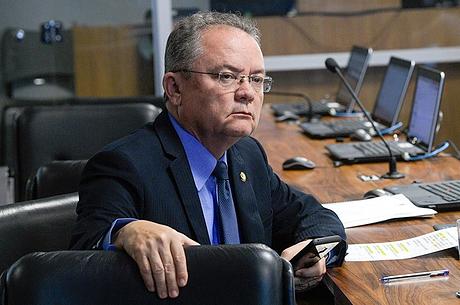
Uncontacted tribe under threat after Senator’s secret plot to open up their territory
Brazilian Senator is plotting to open up the Ituna Itatá Indigenous territory.
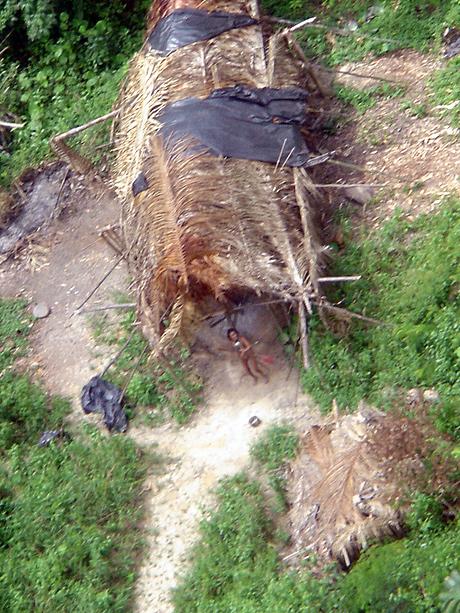
Revealed: Uncontacted tribes’ territories burning as Amazon fires spread
The survival of several uncontacted tribes is now at risk after fires were set inside their territories.
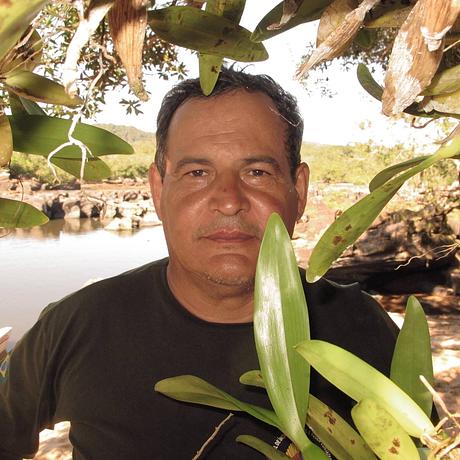
Brazil: Renowned expert killed by uncontacted Indians as their territory is invaded
One of Brazil’s most renowned government agents has been killed.

